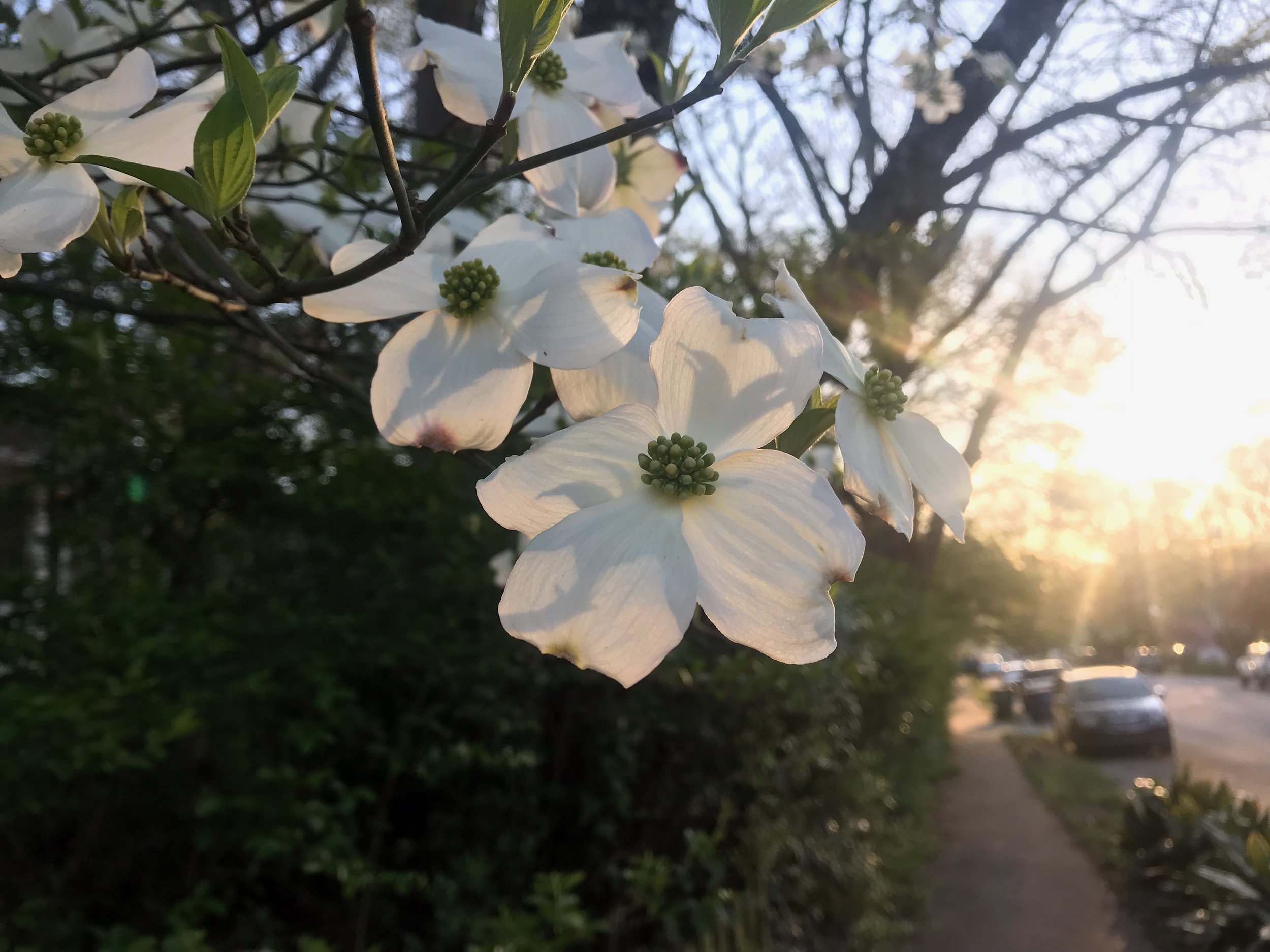I like to dive into the deep end. I love this facet of my personality. I love that I dive head first into things - projects, ideas, relationships, hikes. I love complete absorption. I love to be absorbed and to absorb - everything about a person, a place, a project.
Most recently, I dove headfirst into a spring and summer of planning programming. First, the nonstop planning, incessant questions, mountain of details. Then the implementation, the program, the management. I’m sure you’ve had projects like this. The projects that require your 100% attention - to detail, to progress, to excellence. This project required all of me, and I’m not disappointed that I gave my all. I am incredibly pleased with the results of my summer and relationships I formed.
One result is a physical reality called adrenal fatigue - I’d been running on empty for so long that my body began to break down, and I have been experiencing symptoms like extreme fatigue, depression, inability to concentrate (or, function). It’s been difficult, and recovery is a long journey. I’m at the beginning of a very slow, long climb out of the Grand Canyon of recovery. True to my nature, I didn’t consider the conditions or the weather when I started my hike down. I just dove headfirst. Then I discovered what was hiding at the bottom.
Healing is taking my full attention has also taken a few things away - money, social energy, and in some cases, mental health. But what it’s giving me is a spiritual journey that I would never have uncovered without its assistance.
//when you think you’re going slow, go slower
When you think you’re going slow, go slower. Walk at a slower pace. Take things off your calendar. Pay attention to the fullness of your experience, rather than the fullness of your social calendar or to-do list. I’ve said “no” to SO.MANY.THINGS. I’ve slowed my social pace and extracurriculars to a slow trickle. And you know what? It’s paying off.
Personal wellbeing, personal growth, social justice, community development - these all take time. They take deliberate action, perseverance, and pacing.
//use your resources
One thing I love about my all-or-nothing nature is that I’ve discovered so many resources in the wake of this physical healing journey. I dove into bodywork, herbalism, functional medicine, and research. I struggled to find the right resources and the right answers for what is happening to my body. I refused to listen to an oversimplified version of what is happening to me, instead insisting on a full picture of my health.
Resources came to me in different forms - close friends, mentors, podcasts, medical professionals, Facebook groups. They came to me as surprises and from deliberate action. Each answer, each conversation, was the right one at the right time. Those things couldn’t have been possible without my vulnerability and my seeking.
So when you’re looking for something - an answer, a new job, a new resource - make your needs known. Don’t be afraid to express what you want. Surround yourself with the resources that could give you pieces of the answer. Then use that information to create your own answer.
//celebrate the wins
When you’re in any sort of physical recovery process, healing can seem s-l-o-w. In my case, it is. The physical and mental impact of my spring and summer of extremes changed my entire approach and outlook on life. What used to feel like “wins” can now sometimes seem out of reach. Perhaps in time I’ll be able to reach the higher goals again, but now I choose to celebrate. I’m becoming attuned to the small markers of recovery: an afternoon of energy, a full night’s sleep. A willingness to make social plans. I am learning to feel satisfied with a day of work that is moderately productive compared to the hyperproduction I felt this spring. I am learning to dig in and find true satisfaction in the small wins.
